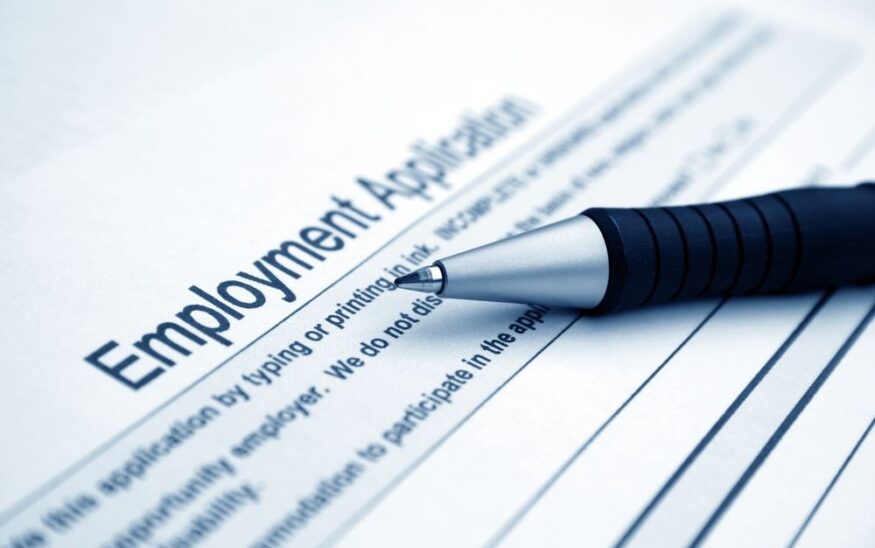Employers: This guy wasn't hurt, but his lawsuit could hurt you


Employers: This guy wasn't hurt, but his lawsuit could hurt you
In recent news reports, a case brought by an unemployed Virginia man made headlines: Thomas Robins filed a lawsuit over information posted about him on people-search site Spokeo. Robins complained that Spokeo described him as better-educated and wealthier than he actually was, which he felt negatively affected his job prospects and violated the Fair Credit Reporting Act.
The Fair Credit Reporting Act (FCRA) regulates consumer information and requires consumer reporting agencies to verify the accuracy of the information they report about individuals. However, Robins’ suit raises some novel issues. The rub with Mr. Robins’ suit is this: the errors made by the listing service seemed to be in Robins' favor and the trial court questioned whether he was in fact harmed by the apparently positive information posted about him such that he could bring a suit in federal court. By making it easier to proceed into federal court, the Ninth Circuit decision will likely result in a surge of lawsuits against the world’s tech giants as well as employers in nearly every industry.
Why is the Highest Court in the Land Hearing Robins vs. Spokeo?
At the heart of Robins vs. Spokeo is the issue of whether an individual can bring a suit where there has been a technical violation of the law, but he has not suffered any concrete harm. A federal court of appeals in the Ninth Circuit previously ruled that he can, finding that “alleged violations of [his] statutory rights are sufficient to satisfy the injury-in-fact requirement of Article III.” Therefore, while the Circuit concluded that Robins had not actually suffered harm, it decided that the statutory FCRA violation satisfied Article III’s injury-in-fact requirement anyway. The Supreme Court has agreed to review the case to determine whether Congress can create a right to sue under this law for a bare statutory violation where there are no actual damages.
If the Highest Court answers this question with a “yes,” it would turn Supreme Court precedent on its head. Historically, a person has the right to sue only if he or she can demonstrate a concrete, personal stake in the outcome of the controversy. The majority of people seeking damages for bare statutory violations of the FCRA cannot allege concrete, personal harm. The nation’s circuit courts of appeals are split on whether these unharmed plaintiffs can bring suit in federal courts based solely on violation of their statutory rights.
Social Media, Networking and Search Engine Websites Watching Case Closely
The Ninth Circuit decision substantially lowers the bar for invoking the jurisdiction of federal courts, inviting a slew of no-injury class actions seeking millions or even billions of dollars in statutory damages under the FCRA or similar federal and state statutes. Depending on the outcome of the Supreme Court’s review, consumers could sue internet companies, including online social networking providers for either connecting with friends or others that are business-oriented, as well as popular search engines, which now contain user data, over alleged violations of privacy and consumer data. This case will have far-reaching implications for tech companies that handle peoples’ personal information.
Criminal Background Checks – Unintended Consequences for Employers
Robins’ suit could also have significant impact on employers who use background checks to screen applicants for employment. Those background checks are typically conducted by consumer reporting agencies, and therefore are covered by the FCRA, which contains specific procedures that an employer must follow in order to obtain or rely upon the results of those searches. An employer’s potential exposure under the FCRA can be daunting; the Robins case could make it even more so.
Think about the hundreds or thousands of people who simply fill out employment applications and for whom employers run background checks. If the Supreme Court permits claims to go forward where there has been no actual injury, an employer who fails to properly comply with the procedures of the FCRA may be subject to individual or even class-wide claims from people who were not injured in any way by the error (such as individuals who were hired despite the procedural error, or those who submitted an application but then chose not to pursue the job, took a position elsewhere, or even declined a job offer). This could significantly expand employers’ exposure, while providing a seeming windfall to individuals who suffered no harm (and the attorneys who bring such claims).
Avoid Legal Pitfalls – Be FCRA Compliant
The best way for employers to defend against lawsuits alleging FCRA violations is to ensure that their procedures are compliant with federal, state and local laws.
Prior to obtaining a consumer report or performing a background check, employers should notify prospective employees that the employer might order a consumer report on the applicant, and obtain the applicant’s written consent authorizing the employer to order the background check. An employer must provide a clear explanation in a stand-alone document that explains what information is being gathered and why. The employer must also make certain certifications to the consumer reporting agency. If, after obtaining the consumer report, the employer intends to take an adverse action against the applicant based on the information in the report, the employer must first notify him of the possible adverse action, and then provide a second notice to confirm that the adverse action was, in fact, taken.
As those of us in the legal community wait in anticipation for the outcome of the Supreme Court’s decision on Robins vs. Spokeo, companies would be best advised to review their processes and procedures and consult with experienced legal counsel as needed.
(This sponsored content was provided by Greenberg Traurig, LLP.)













